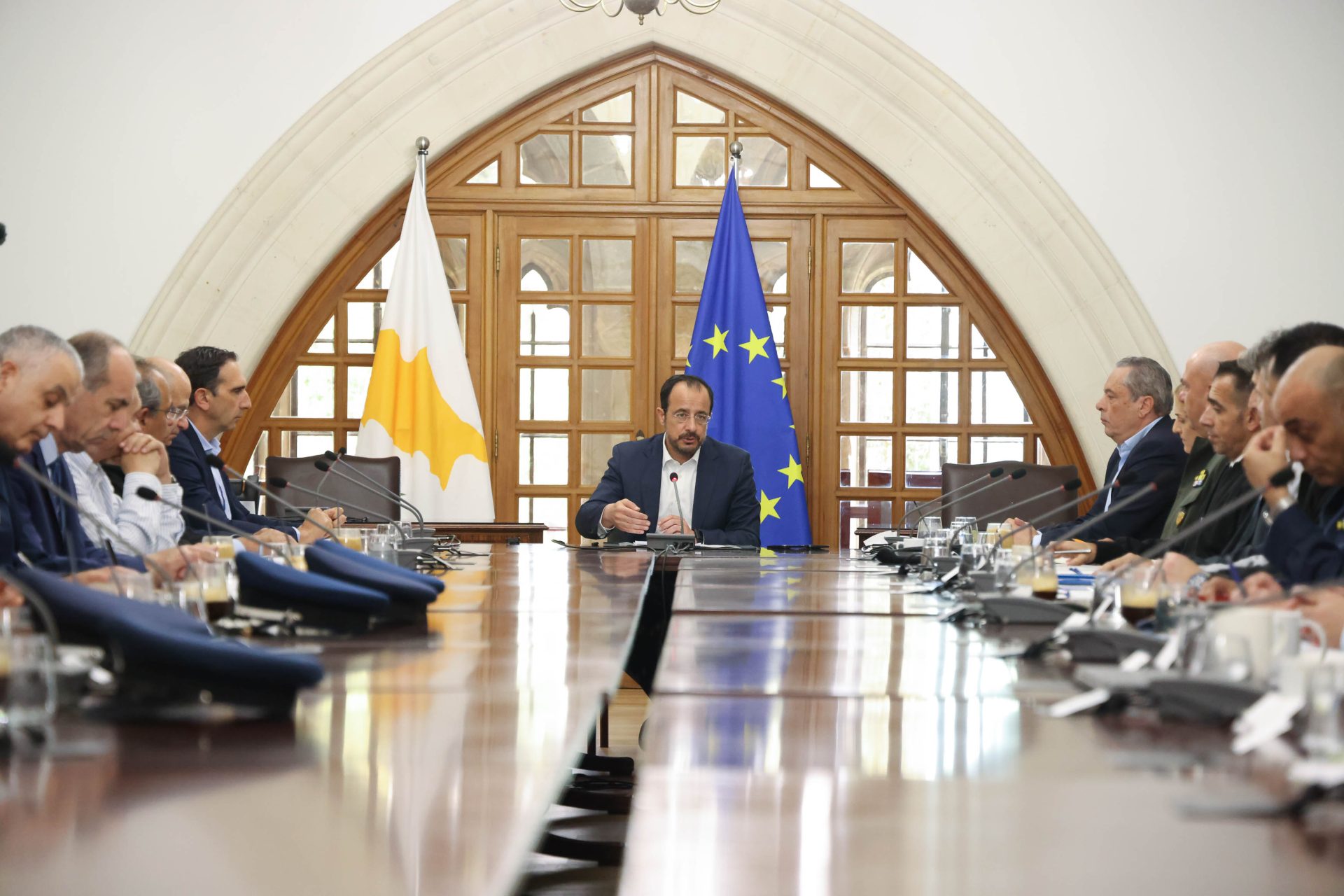The government on Friday vowed to press ahead with a “holistic and coordinated” overhaul of Cyprus’ civil protection framework, following an emergency wildfire summit chaired by President Nikos Christodoulides.
“The government is proceeding with consistency and determination in the comprehensive reformation of the civil protection framework. Our goal is to establish a modern, operationally effective, and interoperable national civil protection mechanism,” government spokesman Konstantinos Letymbiotis stated.
Officials highlighted progress since reforms began 26 months ago, with Letymbiotis stating: “81 per cent of 2024’s forest fires were extinguished before spreading beyond one hectare. The average burned area within state forests per fire has decreased by 28.9 per cent compared to the decade’s average, while first-response times remain consistently at 12 minutes.”
“However encouraging these results may be, not a moment of complacency is permitted. Even a centimetre of burned land is a loss, environmental, social and economic,” he cautioned.
President Christodoulides, who chaired the cross-ministerial meeting, stressed the urgency of long-term planning:
“Climate change impacts are here, affecting the entire planet with particular intensity in our region, which ranks among the Mediterranean’s most vulnerable. The risk of wildfires is not transient, it is persistent and escalating. Our response must be equally persistent: with planning, vigilance, adaptability, and unity.”
A major milestone is the near-launch of the 112 emergency alert system. “The first phase for creating the 112 system is complete, with its implementation in the Fire Service starting within the coming months,” Letymbiotis announced. A second phase integrating other state services is underway. Simultaneously, aerial firefighting assets will transition to National Guard control by April 2025 to bolster “flight safety and rational development of a state-owned fleet”. This year, 11 aircraft are operational, up from six in previous years.
The forestry department has taken delivery of 127 new vehicles, with 29 more pending, while pioneering “Mediterranean-first” tactics.
“In March 2024, we conducted the first controlled burn, and recently piloted controlled grazing,” Letymbiotis noted.
Over €1 million has been granted to communities for firebreaks, with 17 villages fully funded to acquire woodchippers. A 2024 initiative clearing 269 illegal dump sites, backed by €1 million and 172 inspectors, will extend into 2025 due to its “positive impact”. Meanwhile, stricter arson laws passed in February 2025 aim to deter negligence. Over 1,200 people have received firefighting training this year, while the Forest College reopens in September after a decade, offering “expanded training for forestry staff and strengthened partnerships with forest-edge communities”.
Christodoulides stressed the importance of collective responsibility.
“Success depends on the cooperation of all: the state, services, volunteers, and every citizen individually. Prevention is everyone’s responsibility. If we achieve greater prevention, the difficulties we face will be fewer.”
From May 5–11, the agriculture ministry’s annual “Forest Protection Week” will see Minister Maria Panayiotou inspect firefighting readiness and host a public Q&A. Activities include blood drives by forestry staff, school programmes, and radio/TV campaigns. Panayiotou urged citizens to heed advice on fire prevention measures, particularly for farmers and homeowners in fire-prone zones.
Letymbiotis concluded:
“Spending on preventing and addressing extreme weather phenomena is not a cost, it is an investment. An investment for the present, but chiefly for future generations. This battle is of paramount importance. It concerns life, nature, our homeland. It concerns us all, and we will win it together.”
The reforms come as Cyprus faces lengthening fire seasons, with Christodoulides warning:
“We are in May, and challenges have already begun, we had our first fire days ago. Operational readiness and constant improvement are non-negotiable.”
Opening the meeting, President Nikos Christodoulides said the aim was to review 2024 and improve coordination in 2025.
He said there were many positive points in the 2024 review and that in May 2025 the challenges have already started.
“We want to be sure that we are operationally and otherwise ready, and look into prevention,” he said.
The president added that the purpose of the meeting was to discuss long-term planning, make improvements and acknowledge the impact of climate change.
He also said prevention was the most important aspect.
“If we manage to achieve the best degree of prevention, then the difficulties we will have to tackle will be fewer,” he added.






Click here to change your cookie preferences